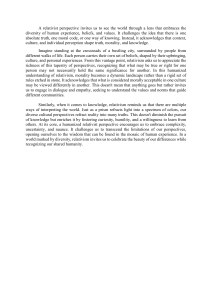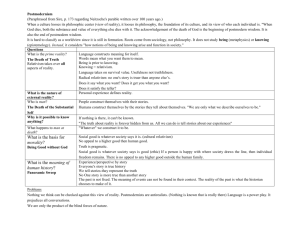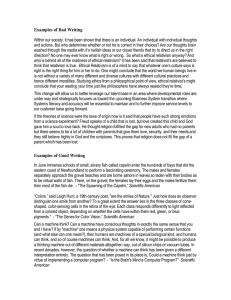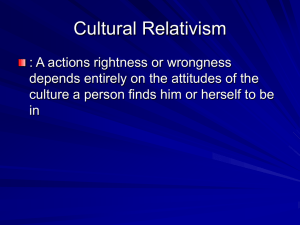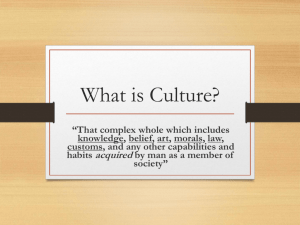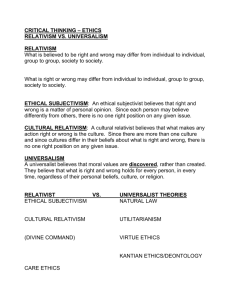restricted relativisms
advertisement
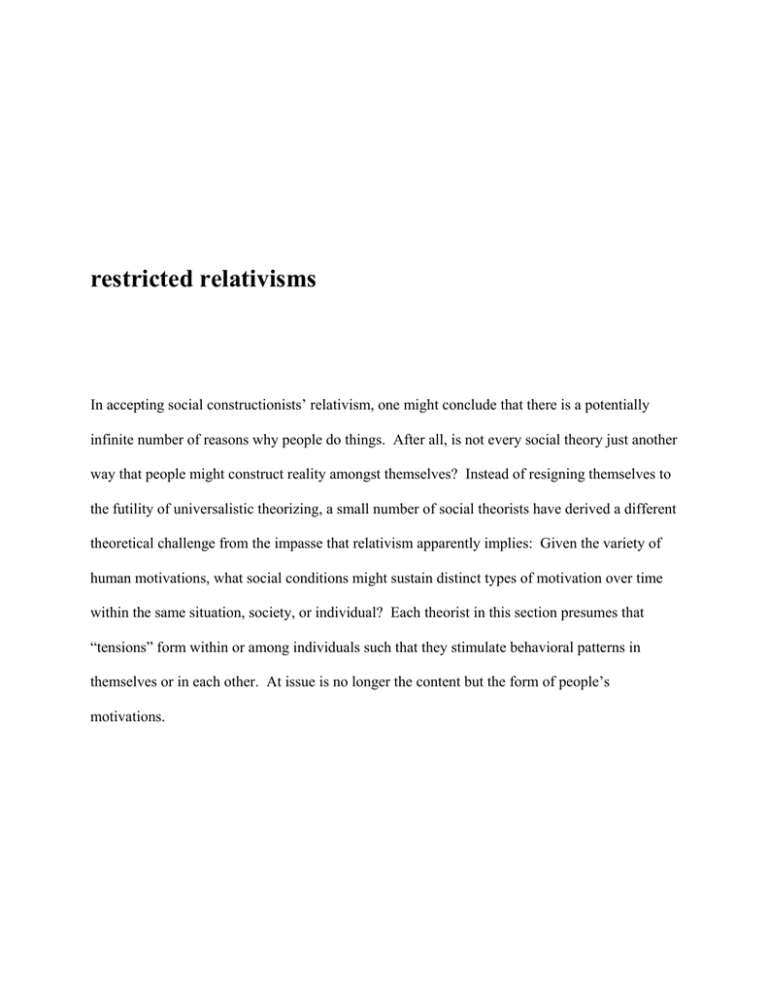
restricted relativisms In accepting social constructionists’ relativism, one might conclude that there is a potentially infinite number of reasons why people do things. After all, is not every social theory just another way that people might construct reality amongst themselves? Instead of resigning themselves to the futility of universalistic theorizing, a small number of social theorists have derived a different theoretical challenge from the impasse that relativism apparently implies: Given the variety of human motivations, what social conditions might sustain distinct types of motivation over time within the same situation, society, or individual? Each theorist in this section presumes that “tensions” form within or among individuals such that they stimulate behavioral patterns in themselves or in each other. At issue is no longer the content but the form of people’s motivations.



